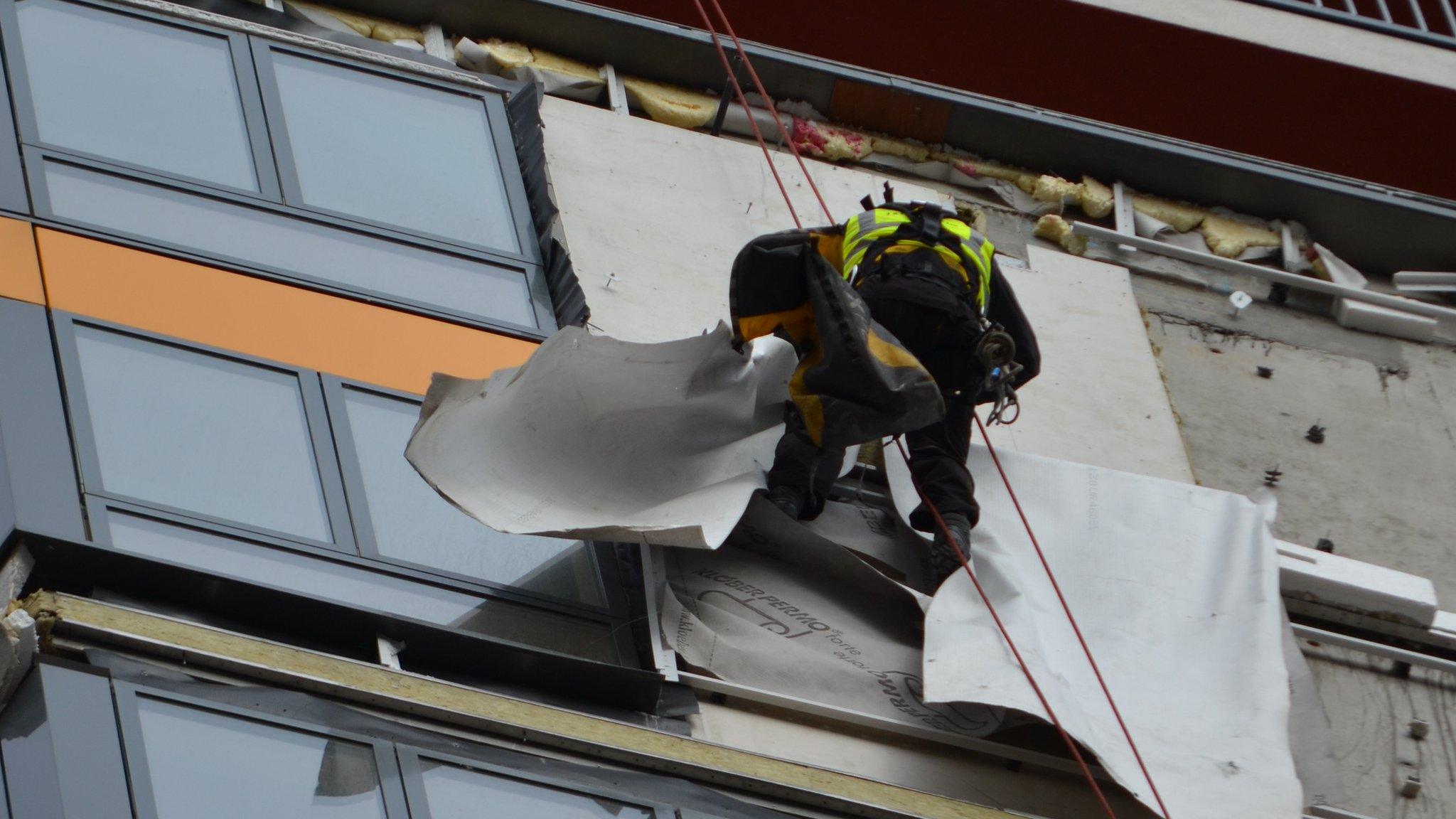Peregrine tower nesting site in Ipswich boarded up
- Published

The birds have successfully bred at The Mill on Ipswich waterfront since the site was first established in 2009
A peregrine nesting site on top of a tower block has been boarded up.
The birds have successfully bred at The Mill on Ipswich waterfront since the site was first established in 2009.
The site's owner said it had been boarded up to stop the birds from returning until cladding, which blew off in the wind, is replaced.
Steve Piotrowski, part of the peregrine project, said it was "not brilliant news because the egg-laying season begins at the end of March".
However, Paul Musson, a director of EWS chartered surveyors which manages The Mill on behalf of current owner Wharfside Regeneration (Ipswich), said: "There's no start date for the cladding work, but in order to prevent any further delays we can't have nesting peregrines because we can't, by law, disturb them.
"There's certainly an intention to restore a nest box once cladding work is complete."
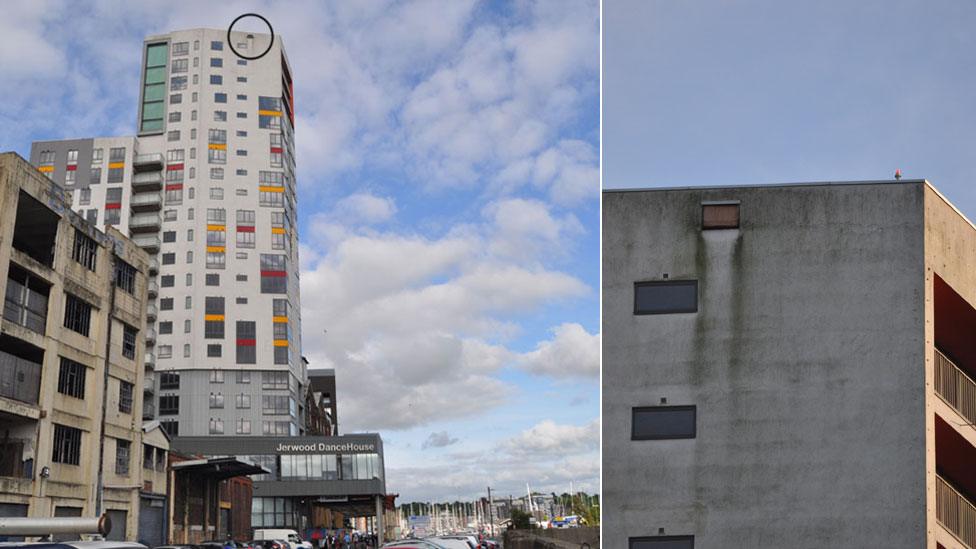
The nesting site at the top of The Mill (left) has been boarded up to prevent peregrines returning in 2019
The nesting site was built into the 233ft (71m) high tower block by a group of wildlife enthusiasts and the developer 10 years ago, and 12 chicks have been recorded as fledging since then.
Work on elements of the building stalled in 2009 during the recession and in 2013 high winds blew off some of the polystyrene cladding.
Ownership of the building has changed over the years, but construction work has not resumed.

In 2013, high winds blew polystyrene tiles off the waterfront side of The Mill
Peter Merchant, another ornithologist involved in the project, said an alternative nesting box had been put on a six-storey University of Suffolk building, half a mile away.
"We have found carcasses, which is evidence of peregrine kill, so there is every likelihood they could nest there, albeit the building is lower," he said.
"Peregrines are an important environmental asset to the waterfront not only for their considerable appetite for feral pigeons, but as a point of interest for visitors."
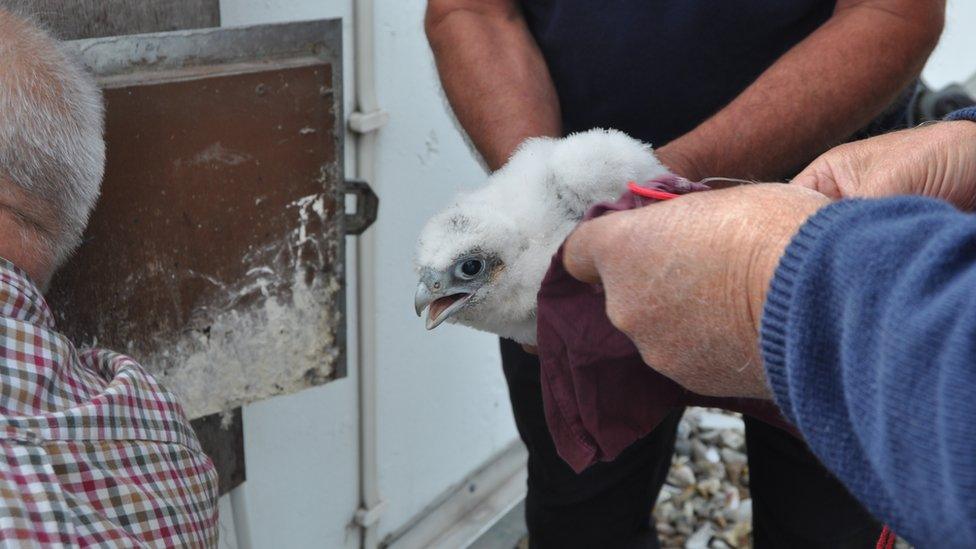
Peregrines are the world's fastest bird, reaching flying speeds of 180mph when diving
Related topics
- Published25 May 2016
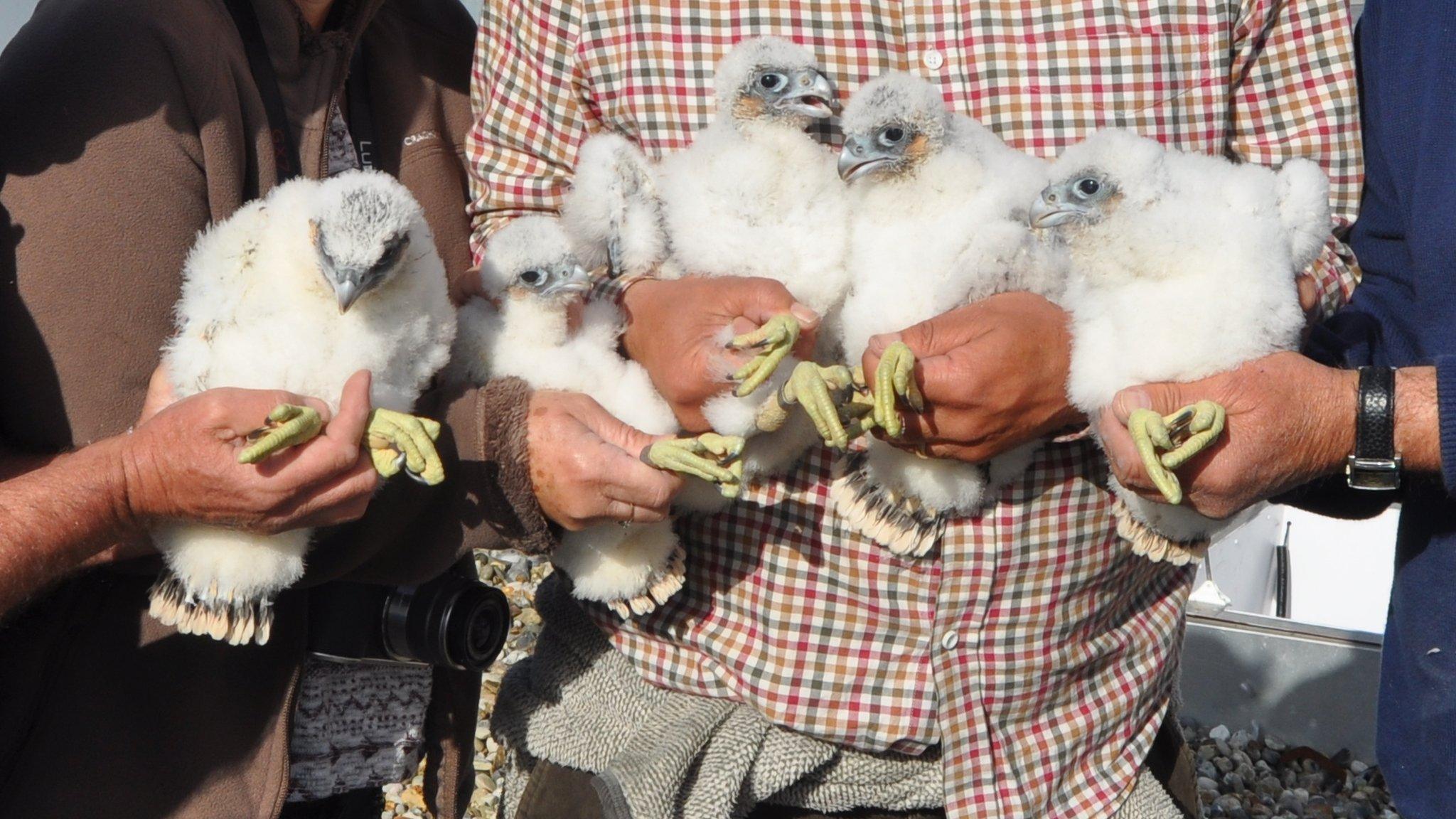
- Published25 May 2016
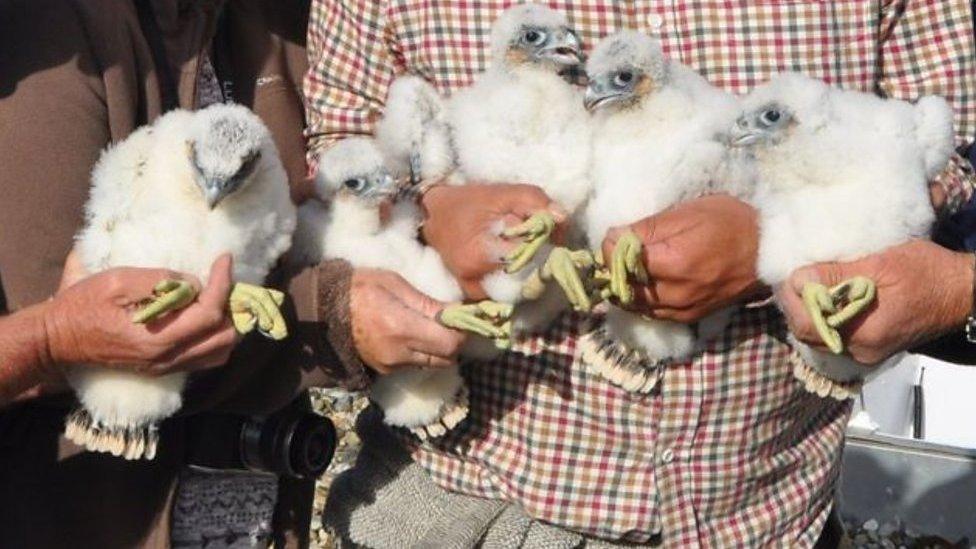
- Published3 May 2016
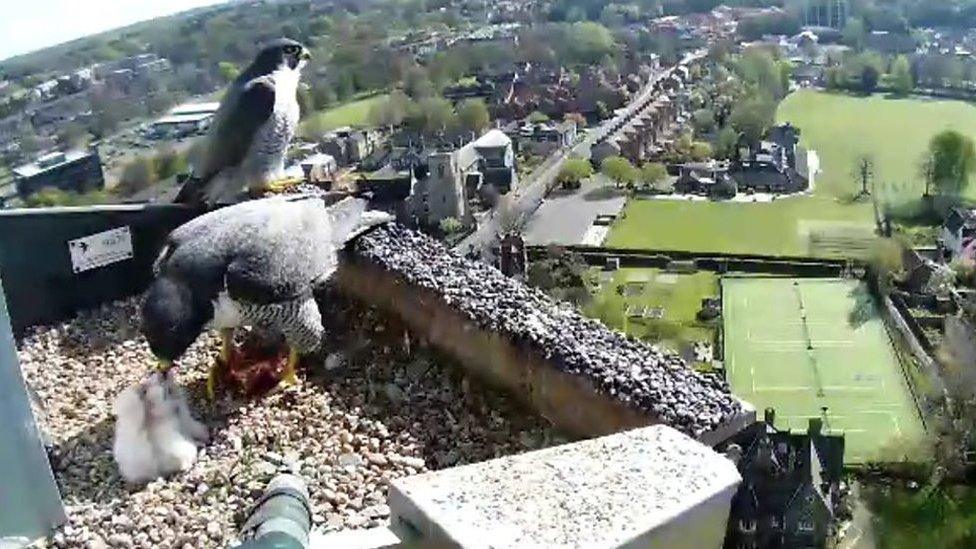
- Published1 November 2015
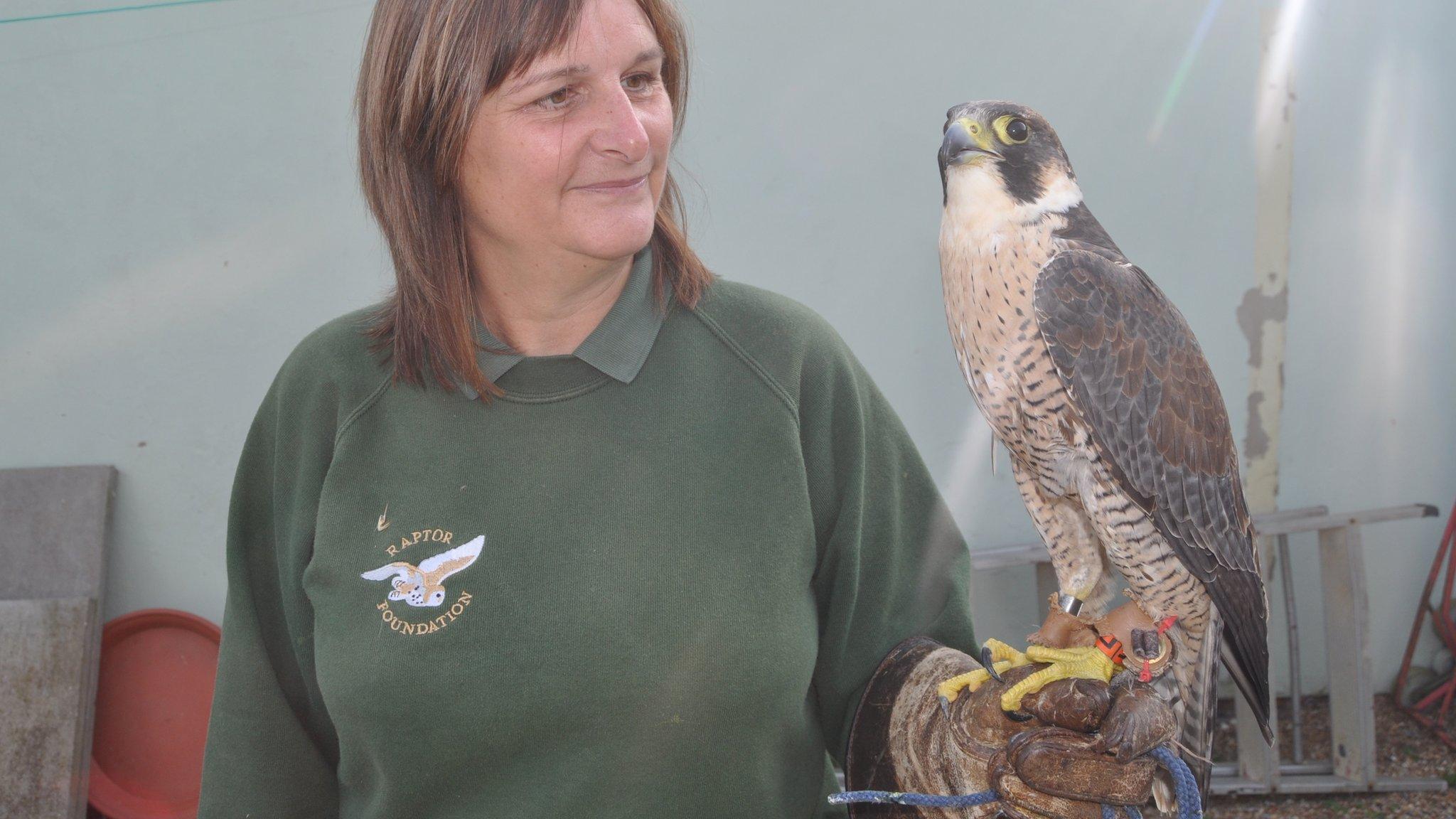
- Published9 September 2014
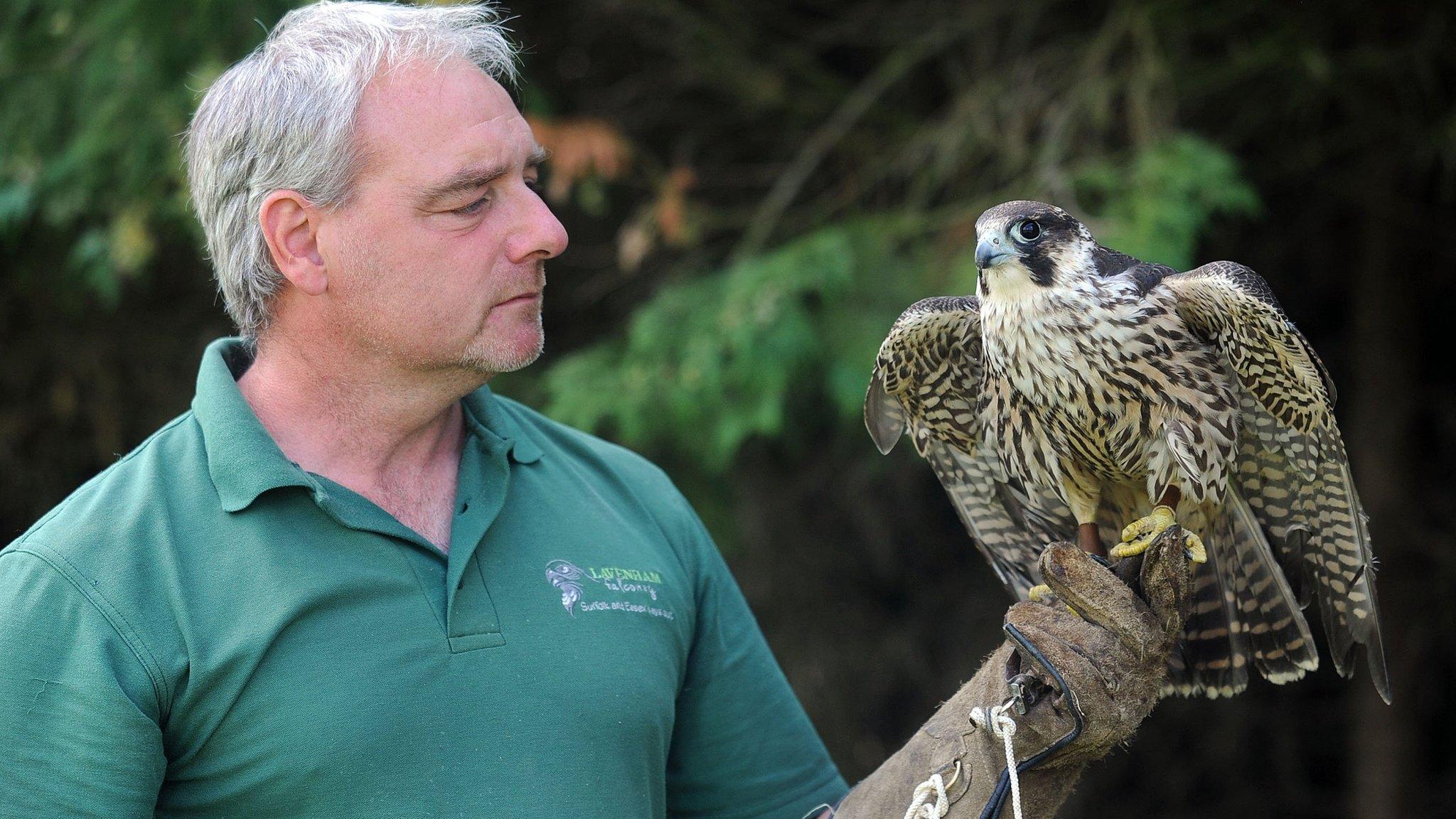
- Published29 October 2013
